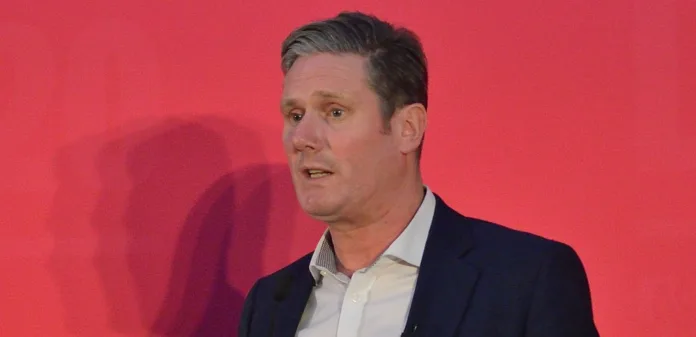MPs poised to vote against proposed reductions in winter fuel payments, risking expulsion from the party
Labour MPs are bracing for a showdown next week as they prepare to defy their leader, Sir Keir Starmer, over proposed cuts to winter fuel payments. Despite warnings of possible expulsion from the party, some backbenchers are resolute in their opposition to the plan, which aims to withdraw winter fuel payments from most pensioners.
The proposed cuts, which will be up for a parliamentary vote next Tuesday, seek to restrict winter fuel payments to only those claiming pension credit, impacting around 10 million pensioners. In response to the backlash, the government has pointed to other forms of financial support, including an anticipated increase in the state pension and a projected drop in energy costs for the coming winter.
Embed from Getty ImagesA political spokesman for Starmer stated that disciplinary actions would be determined by the Chief Whip, but it remains unclear whether rebellious MPs will face expulsion or other sanctions. Despite the uncertainty, dissenting MPs like Rachael Maskell, representing York Central, are determined to vote against the cuts. Maskell argues that the issue transcends mere politics, emphasizing the moral responsibility of MPs to safeguard vulnerable individuals.
Stella Creasy, Labour MP for Walthamstow, echoed Maskell’s sentiments in an article for LabourList, suggesting that instead of cutting benefits, the government should focus on reducing costs associated with Private Finance Initiatives (PFI). Some left-wing MPs are reportedly considering abstention from the vote to avoid direct confrontation with party leadership.
The government counters that the impact of losing the winter fuel payment will be offset by an expected £400 increase in the basic state pension next year due to the triple lock mechanism. This policy ensures pensions rise faster than inflation, a measure designed to protect retirees from economic hardship. Additionally, a £150 warm home discount for low-income households will be introduced in October, and the household support fund has been extended to aid vulnerable families.
Downing Street has defended the cuts by highlighting these compensatory measures. A spokesperson reiterated the government’s commitment to the triple lock and other support mechanisms, underscoring that the winter fuel payment cuts are part of broader fiscal measures to address a £22 billion budget deficit uncovered during a recent audit.
Opposition leader Rishi Sunak questioned Starmer during Prime Minister’s Questions, accusing him of prioritizing certain groups over vulnerable pensioners. In his response, Starmer defended the government’s record, stressing the necessity of tough decisions to stabilize the economy and address the fiscal challenges left by previous administrations.
As the debate intensifies, Labour rebels are poised to make a decisive stand against the proposed cuts, highlighting the internal divisions within the party and the broader debate over welfare and economic policy.
Analysis:
Political: The controversy surrounding the winter fuel payments reflects deep-seated political tensions within the Labour Party and broader societal debates on welfare reform. The internal rebellion against Starmer’s proposed cuts highlights a significant rift between the party’s leadership and its left-leaning members. This conflict could impact Labour’s unity and electoral strategy, potentially weakening the party’s position in future elections. The government’s handling of this issue, juxtaposed with its broader fiscal policies, also illustrates the challenges of balancing economic stability with social welfare commitments.
Social: The debate over winter fuel payments taps into broader social concerns about the welfare state and the treatment of vulnerable populations, particularly the elderly. The potential impact on pensioners underscores ongoing societal concerns about income inequality and the adequacy of support for retirees. The willingness of MPs to defy party leadership on this issue reflects a commitment to social justice and highlights the moral considerations that drive parliamentary decisions.
Racial: While the winter fuel payment cuts are not directly related to racial issues, the broader context of welfare reform often intersects with racial and socioeconomic disparities. For instance, marginalized communities may be disproportionately affected by cuts to social benefits, which can exacerbate existing inequalities. The debate also serves as a reminder of the need for policies that address the diverse needs of all communities, including those facing economic hardships.
Gender: The winter fuel payment cuts will impact both men and women, but women, who generally live longer and are more likely to be pensioners, might be more affected by such cuts. The discussion around these payments highlights the importance of considering gender-specific impacts in welfare policy decisions. Ensuring that policies are equitable and address the needs of all genders is crucial in maintaining fairness and social support.
Economic: Economically, the proposed cuts to winter fuel payments are part of broader austerity measures aimed at addressing a substantial budget deficit. The government’s rationale for the cuts includes compensatory increases in the state pension and other forms of support, reflecting an effort to balance fiscal responsibility with social welfare. The effectiveness of these measures in mitigating the impact on pensioners will be closely scrutinized, and the broader economic implications of such cuts could influence public perception and future policy directions.
